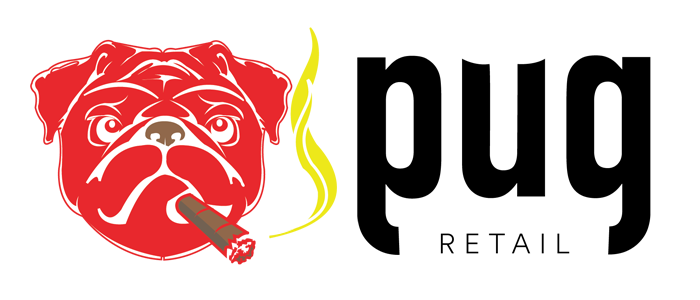What Does Customer Relationship Management (CRM) Mean to You?
Have you ever wondered how building strong relationships with your customers can transform your small business? Customer Relationship Management (CRM) is not just another business buzzword; it’s a vital strategy that can help you nurture relationships with your clients, streamline processes, and enhance your overall customer experience.
By implementing a CRM system, you can gain insights into your customers’ behaviours, preferences, and needs. With tools like the Point of Sale (POS) system from pugretail.com designed specifically for small businesses, you can seamlessly integrate customer interactions and improve your service, leading to long-term loyalty.
Understanding CRM: The Basics
Customer Relationship Management refers to the practices, strategies, and technologies that companies use to manage and analyze customer interactions throughout the customer lifecycle. The goal? To enhance customer service, foster customer loyalty, and drive sales growth.
Why is CRM Important?
You might be wondering, “Why should I invest my time and resources into CRM?” The answer lies in the numerous benefits that a solid CRM system offers, such as:
-
Improved Customer Service: By having all customer information in one place, you can respond more effectively to inquiries and concerns, creating a better experience for your customers.
-
Increased Sales: An effective CRM helps identify sales opportunities, track leads, and automate various processes, leading to an increase in conversions.
-
Enhanced Communication: With CRM, communication becomes more organized, allowing you to communicate effectively across different channels.
-
Better Data Management: Managing customer data is crucial. A CRM system ensures that you gather, store, and analyze customer information securely.
Key Features of CRM Systems
When looking at CRM offerings, it’s crucial to understand the key features that make a system effective. Here’s a closer look:
Contact Management
At the core of any CRM is its ability to manage customer information. You can store details like contact information, purchase history, and preferences all in one accessible platform. This data is invaluable for personalizing your communication with customers.
Sales Management
A CRM system allows you to track sales, from leads to close. You can monitor your sales pipeline and funnel, helping you identify potential pitfalls and areas for improvement. With tools like pugretail.com, you get insights that let you draw the line from customer interest to actual sales.
Reporting and Analytics
Effective decision-making relies on data. A robust CRM system provides you with the reporting tools you need to analyze customer data, track trends, and evaluate performance. Understanding these metrics can lead to better business strategies and forecasting.
Customer Interaction History
Having a detailed history of customer interactions—calls, emails, meetings—can help you engage clients more effectively. You can tailor your messages based on past communications, showing customers that you care and pay attention to their needs.
Integration Capabilities
A CRM system should work seamlessly with other platforms you use, whether it involves your accounting software, email marketing tools, or the POS system you implement through pugretail.com. This integration cuts down redundancy and helps keep your operations running smoothly.
The Role of CRM in Small Businesses
How does your small business benefit from adopting a CRM strategy? It’s essential to recognize the unique advantages it offers to businesses like yours.
Personalized Customer Experiences
In a competitive marketplace, it’s not just about providing a product or service. Customers want to feel valued. Utilizing a CRM, you can tailor experiences to individual preferences, creating stronger connections.
Streamlined Marketing Efforts
With a CRM’s tools, you can segment your customer base, track campaign effectiveness, and understand what resonates with your audience. Marketing becomes more targeted, increasing efficiency and effectiveness in your outreach.
Improved Customer Retention
By properly nurturing your relationships, you stand a higher chance of retaining customers. Repeat customers are often more profitable than new acquisitions. A CRM helps you monitor customer satisfaction and address issues before they escalate.
Efficient Workflow Automation
CRM systems often come with automation features that help streamline repetitive tasks. Whether sending reminders, scheduling follow-ups, or managing leads, these automations allow you to focus on what you do best.
Selecting the Right CRM for Your Business
Choosing the right CRM system can feel overwhelming. With so many options, it’s important to know what to look for. Here are some considerations to keep in mind:
Determine Your Business Needs
What specific challenges are you looking to solve with a CRM? Take some time to outline your primary goals and how you envision the system supporting these objectives.
Assess Scalability
As a small business, you will want to select a CRM that can grow with you. Choose a system that offers scalability so you can adapt as your business expands, accommodating more users and features.
Cost Considerations
Budget constraints are a reality for many small businesses. Compare the costs of different CRM systems, keeping an eye out for both upfront expenses and ongoing subscription fees. Yet remember, investing in a quality CRM is often worthwhile in the long run.
User Experience
Make sure to choose a user-friendly CRM. The system should be intuitive for you and your team members. Consider how it integrates with training resources, as a complicated system hinders productivity.
Integrating CRM with Your POS System
Have you thought about how your CRM connects with your Point of Sale system? By using a dedicated POS like that offered by pugretail.com, you can have a seamless flow of data between sales transactions and customer interactions.
Why Integrate?
When your CRM and POS work together, you get a 360-degree view of your customer interactions. This integration can track customer buying patterns, preferences, and histories all linked to their actual purchases.
Benefits of Integration
-
Comprehensive Data Insights: Knowing what a customer has purchased helps tailor future recommendations or promotions.
-
Enhanced Transaction Process: Linking customer data helps speed up transactions, providing an optimal checkout experience that can encourage repeat business.
-
Streamlined Inventory Management: Integration ensures that when a purchase is made, your inventory reflects that in real-time, making stock management easier.
Building a Customer-Centric Culture
Incorporating CRM practices goes beyond just implementing software. It requires cultivating a customer-centric culture within your organization. Here’s how you can achieve that:
Training Your Team
Educate your staff on the importance of customer relationships. Training should not only focus on how to use the CRM but also emphasize the values of empathy, communication, and customer service.
Encouraging Feedback
Create open lines of communication where customers feel comfortable providing feedback. Using this information can guide improvements in your offerings, helping to tailor service based on real needs.
Celebrating Customer Milestones
Whether it’s a customer returning for their first purchase anniversary or a birthday, recognizing these moments can strengthen relationships. Use your CRM to set reminders for personalized outreach.
Keeping Up with Technology Trends
The digital landscape is continually evolving, and so are CRM technologies. Staying updated ensures you continue to get the most from your CRM investment. Here are some trends to consider:
Artificial Intelligence (AI)
AI is reshaping how CRM systems operate, making features more intelligent. Predictive analytics can help anticipate customer needs, while chatbots can provide 24/7 customer service.
Mobile Optimization
In our mobile-driven world, your CRM should be accessible on-the-go. Mobile capabilities allow your team to manage customer interactions anytime, anywhere.
Customer Data Privacy
With increasing concerns around data privacy, ensuring your CRM complies with regulations is vital. Protecting customer data builds trust and loyalty.
Conclusion: Making CRM Work for You
As you move forward with your CRM journey, it’s important to remember that your ultimate goal is to build lasting relationships with your customers. With the insights and tools provided by a robust CRM strategy, you can enhance customer satisfaction, streamline operations, and grow your business.
By integrating a POS solution specifically designed for small businesses like pugretail.com, you can effortlessly manage your customer relationships and transform the way you interact with your clientele.
In the end, investing time and effort into your CRM strategy now can lead to substantial benefits in the future. Embrace the tools at your disposal, keep your customers at the center of your efforts, and watch as your relationships flourish.
Your path to better customer relationships starts today!

